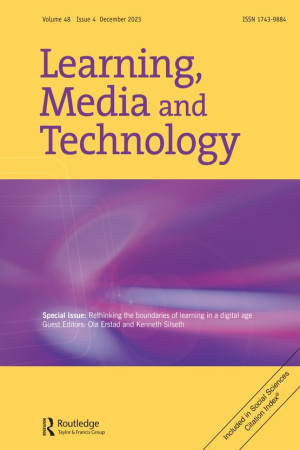Post-Platform Education: Reimagining Digital Ecosystems in Primary and Secondary Schooling

Category: Publication
In recent years, European schools and classrooms have become increasingly dependent on Big Tech ecosystems and their promises to seamlessly interconnect physical devices, educational software and apps, and cloud services. With companies such as Google, Microsoft and Apple tightening their grip on classrooms’ transition into digital environments, Big Tech is asserting control over the material infrastructures, discursive framings, and economic logics undergirding educational digitalization. As noted in recent scholarship, the process of platformization provides a useful conceptual tool to describe the implications of this dynamic, namely the transformation of educational content, activities and processes to become part of a (corporate) platform ecosystem, including its economies (data) infrastructures and technical architectures (Kerssens & Dijck, 2021; Srnicek, 2016). In educational research, the broad field of study encompassed under the sociologies of education has proven to provide especially fertile soil for critically analyzing the roles and effects of digital technologies as they become entangled with educational ideas, professional practices, and school materialities (Selwyn, 2019). Applying the analytical lens of platformization, recent work has examined Big Tech influence in public education, including the power of corporate cloud companies and infrastructures in educational governance (Cone et al., 2022; Kerssens, 2024; Kerssens et al., 2023; Williamson et al., 2022). One strand of these studies has engaged specific platform brands such as ClassDojo (Manolev et al., 2019), Google Classroom (Perrotta et al., 2021), as well as various country-specific platforms (Gorur & Dey, 2021; Hartong, 2021), exploring how users and pedagogies are configured in and through the platforms’ technical arrangements (Sefton-green & Pangrazio, 2021). Others have taken up the political economy underpinning platformisation, probing how and to whom data is generated, circulated, turned into assets as it moves across platforms, governmental entities, educational institutions, teachers, and other actors (Birch & Muniesa, 2020; Komljenovic, 2021; Pangrazio et al., 2023). Another strand of research has examined how platformization affects the day-to-day relations of teachers and students in schools and other lived, institutional settings (Apps et al., 2023; Cone, 2023, 2024). Yet as the monetary models, materialities, and embodied effects of Big Tech education come under increasing scholarly, political, and regulatory scrutiny, the apparent disaffection permeating much of the literature on platforms and platformization begs the question of how and where to look for alternatives – both from a practical, administrative, pedagogical, and ethical viewpoint. Specifically, recent years have seen a growing body of calls for critical scholars, activists, and teachers to explore possibilities for reimagining digital education ecosystems that can challenge the status quo of the platform as the infrastructural and pedagogical default for educational digitalization (Selwyn, 2022; Selwyn et al., 2020). With this special issue, we seek to give space for empirical presentations and theoretical frameworks that can nurture such forms of questioning of post-platform education and thereby mobilize the global educational research community around the critical study of platformization – not to reject but rethink the use and potentiality of digital technologies in education (Macgilchrist, 2021). The special issue invites papers that explore possibilities for grounding digital technologies in primary and secondary schooling in other forms of pedagogical and sociological reasoning, infrastructural arrangements, and forms of governance. This can include, but is not limited to studies of: Alternative infrastructures and economic arrangements for digital educational governance of primary and secondary education, hereunder explorations of the promises and pitfalls of alternatives based in open-source or other non-proprietary models for digital design and development Digital degrowth and other critical theoretical resources for thinking with and beyond platforms in ways that foreground other values and criteria of evaluation in schools Studies of power asymmetries and inequality in EdTech development and markets for school education, hereunder alternative forms of market-making and feminist design practices Collective forms of mobilization against big tech across different stakeholders (teachers, unions, politicians) and levels (institutional, sectoral, national, transnational) Countervailing discourses and framings of EdTech, especially in light of current digital backlashes unfolding in different regions Postdigital concepts and design processes that recognize educational realities as messy and historical rather than ahistorical problems to be solved Sociotechnical imaginaries of digital education based in post-platform pedagogies or other models for re-imagining digital ecosystems in schools Institutional interventions based on extending the terms and interests connected to post-platform education.
Initiator(s):
Learning
,
Media and Technology Journal
Deadline: 31.01.2025
Publication-Type: Article / Journal
Post created by: Lymor Wolf Goldstein